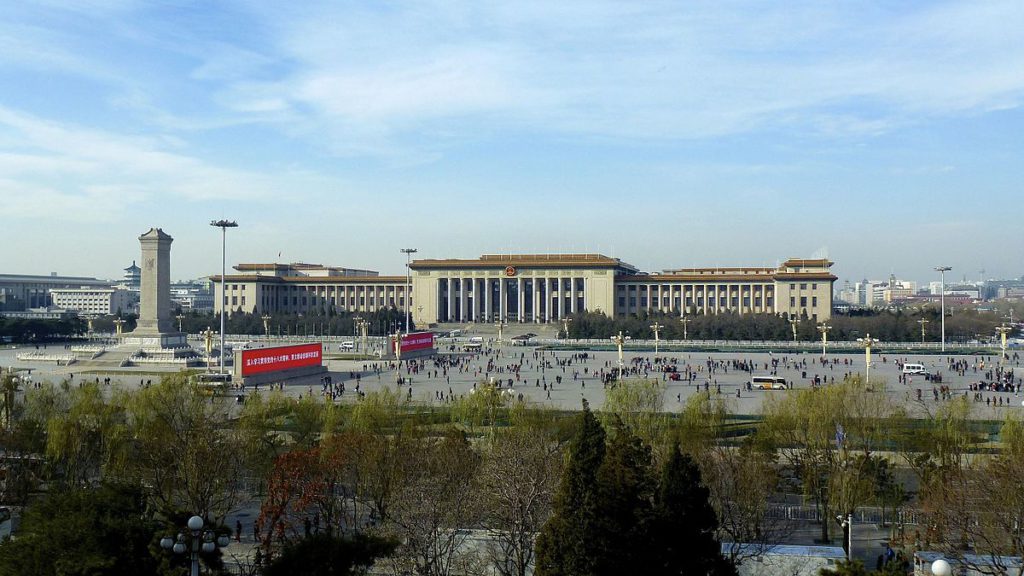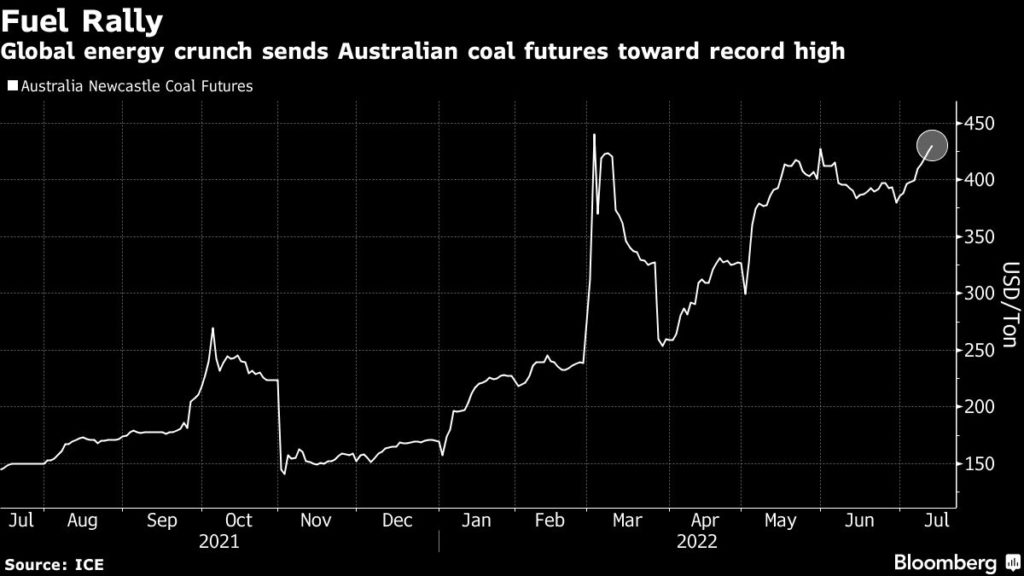China studies ending Australia coal ban on supply fear

Chinese bureaucrats studying the energy outlook are proposing to end a near two-year ban on Australian coal as tensions begin to ease and on concerns supply may tighten when Western-led sanctions on Russian energy kick in.
The proposal will be submitted to senior leaders, with a recommendation Beijing should resume Australian imports, according to people familiar with the plan. That’s been prompted by fears European-led curbs on Russian energy will increase competition for coal from China’s main suppliers such as Indonesia.
Officials are looking to boost fuel supplies to avoid a repeat of last year’s power disruptions — particularly ahead of a key party congress — said the people, who requested anonymity to discuss a private matter.
The plan will be handed to leaders who are in a position to authorize any change in policy to make a final decision, the people said. Though it remains uncertain whether a decision will ultimately be made to lift the ban, some companies are already preparing to resume imports, according to two other people.
Australia has an opportunity to “build up positive energy, and create favorable conditions for sound and steady development between China-Australia trade relations,” Chinese Foreign Ministry spokesman Wang Wenbin said Thursday at a regular briefing in Beijing, when asked about the prospect of ending the ban.
China’s top economic planner which oversees energy policy, the National Development and Reform Commission didn’t immediately respond to requests for comment. The Ministry of Commerce didn’t respond to a question on removing the import restrictions.

China — which used to be a major consumer of Australia’s coal — implemented an unofficial ban in late 2020 as hostilities between Canberra and Beijing escalated over a decision to bar Huawei Technologies Co. from building a 5G network, and after then-Prime Minister Scott Morrison led calls for an independent probe into the origins of the coronavirus.
Earlier curbs were imposed on a string of Australian imports — from coal to wine to beef and lobster. The loss of Australian coal, however, was particularly painful for China, which grappled with energy shortages last year due to the lack of fuel from the world’s second-largest exporter.
Australian Foreign Minister Penny Wong and Chinese counterpart Wang Yi met Friday for the first talks between top diplomats from the two nations since 2019. China is willing to work to get relations back on track, Wang said in a statement.
Beijing’s plans are also a response to decisions by coal consumers including the European Union, Group of Seven nations and Japan to ban Russian imports as soon as this year. The moves are adding pressure on global markets just as demand for the dirtiest fossil fuel booms with tight supplies across the energy complex. While Beijing hasn’t adopted sanctions, the ban will intensify competition between China and other buyers for all available coal, including shipments from its top supplier, Indonesia, the officials said.
Removing a ban on Australian shipments will provide China with far more flexibility when procuring fuel for power plants or metallurgical coal for steelmaking. Australia makes up almost 30% of total coal exports, making it the largest supplier behind Indonesia.
Asia’s benchmark Newcastle coal surged to a record last month amid intense competition for a dwindling pool of available cargoes. A brutal heatwave has also turned deadly across large swathes of China, with officials starting to curtail power to factories to ease the strain on the grid and prevent power shortages.
Chinese coal futures slid on the news. Coking coal on the Dalian Commodity Exchange fell as much as 4.1% to 2,002 yuan a ton at the start of the overnight trading session, while coke dropped as much as 5.2%.
China seeks to secure imports to build stockpiles and ensure provinces won’t need to implement curbs on electricity supply that hampered some industries last year. The nation is also extending an expansion of domestic production that saw local miners deliver more than 4 billion tons last year.
(With assistance from Kathy Chen, Jing Li, Philip Glamann, Lin Zhu, Dan Murtaugh and Luz Ding)
{{ commodity.name }}
{{ post.title }}
{{ post.date }}




Comments